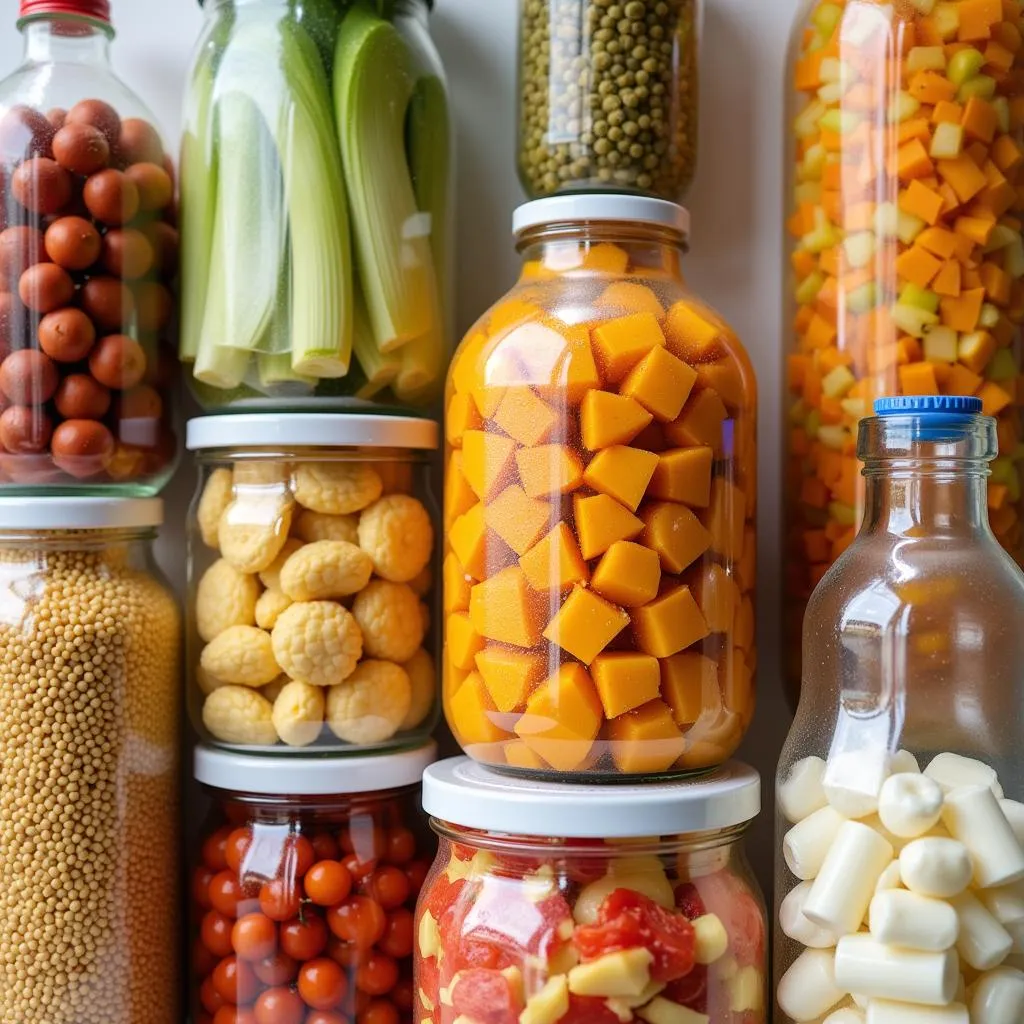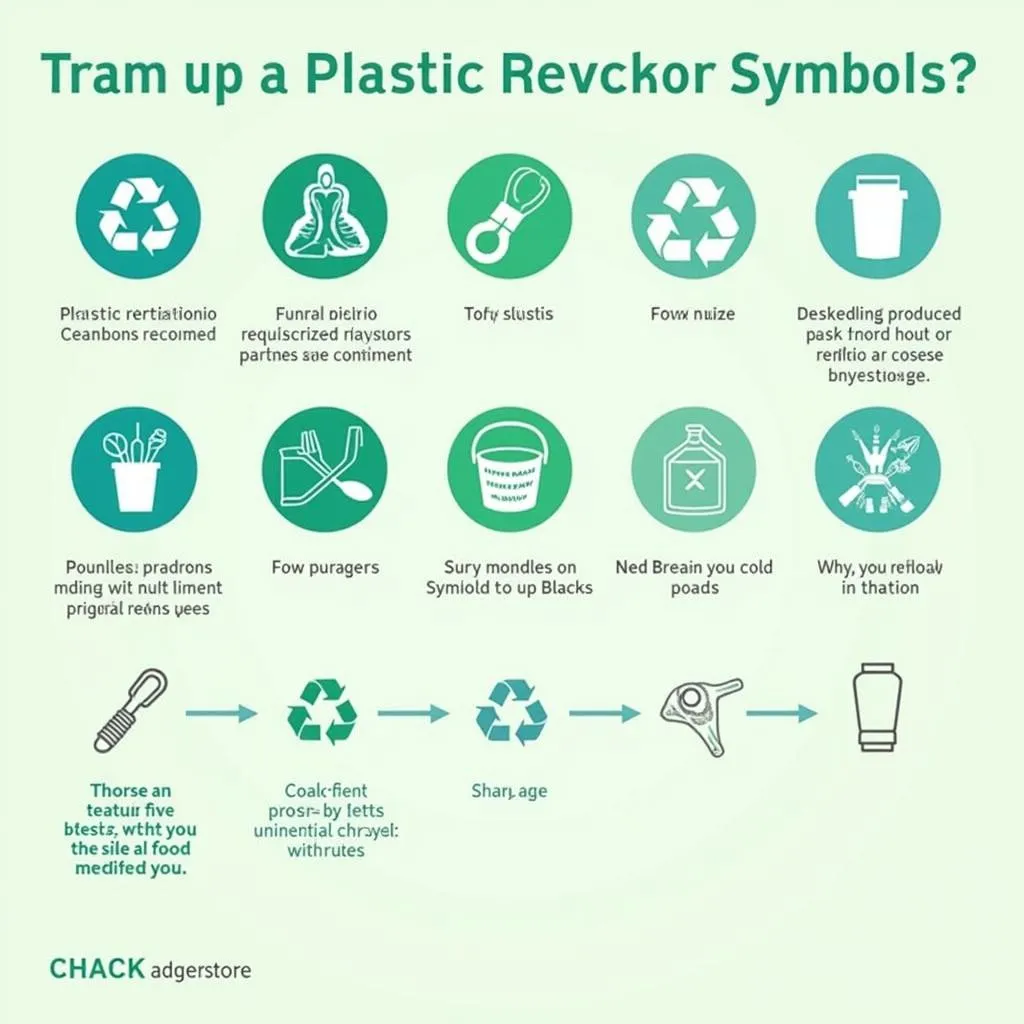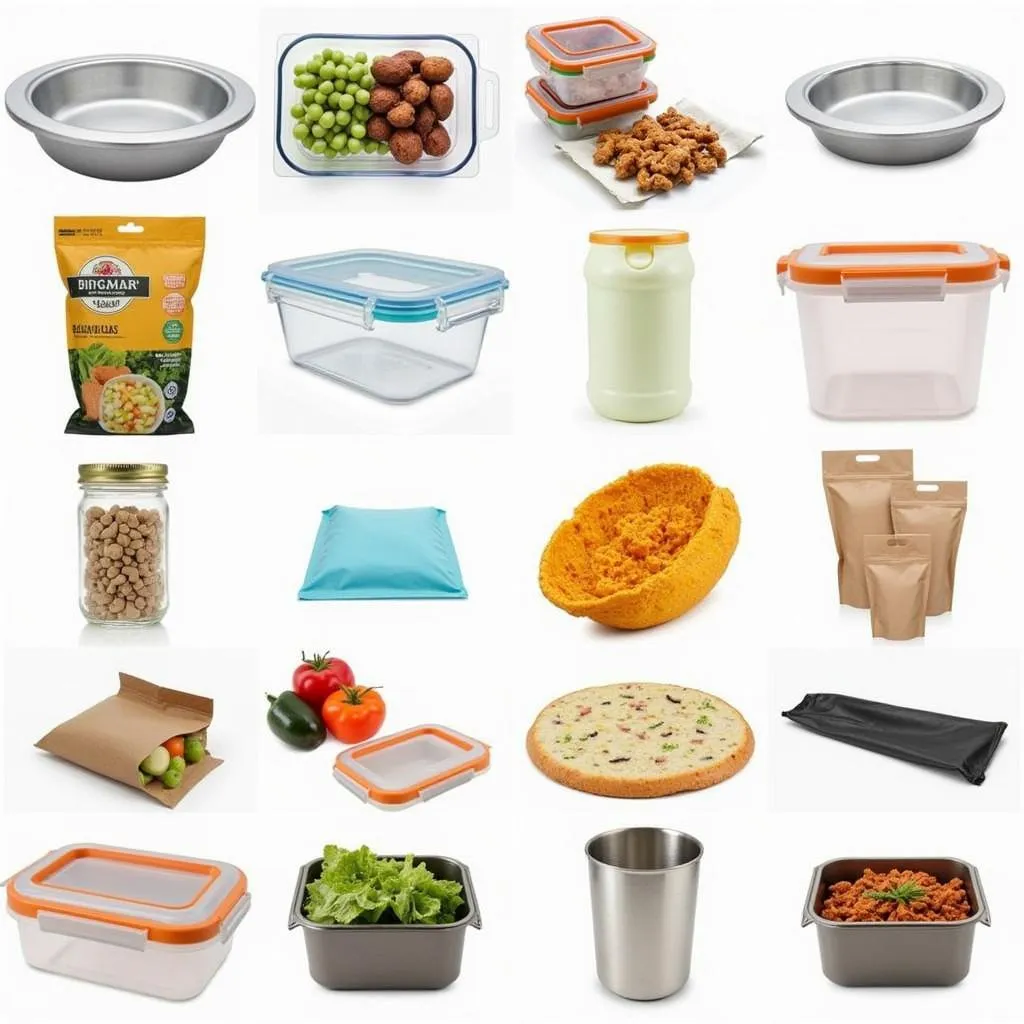Plastic bottles are ubiquitous in our daily lives, often used to store beverages and other liquids. But their use extends beyond that, with some individuals utilizing them for food storage. This raises questions about the safety and sustainability of using plastic bottles for food.
 Plastic bottles used for food storage
Plastic bottles used for food storage
The Appeal and Concerns of Plastic Bottles for Food Storage
Plastic bottles seem like a convenient option for storing food. They are readily available, lightweight, and often transparent, allowing for easy identification of contents. However, their safety and environmental impact raise concerns that cannot be ignored.
Safety First: Understanding the Risks
Not all plastics are created equal, and some types are not intended for food contact. Using the wrong type of Plastic Bottle For Food storage can lead to harmful chemicals leaching into your food, especially when exposed to heat or acidic foods.
Key considerations for safety:
- Type of plastic: Look for bottles labeled with the recycling symbols #1 (PET or PETE), #2 (HDPE), #4 (LDPE), or #5 (PP) as these are generally considered safe for food contact.
- Previous contents: Avoid reusing single-use bottles or those that previously contained non-food items as they may not be suitable for food storage.
- Cleaning and sanitation: Thoroughly wash and sanitize plastic bottles before using them for food storage.
 Safe plastic recycling symbols for food containers
Safe plastic recycling symbols for food containers
Environmental Impact: The Sustainability Question
The use of plastic, even for food storage, contributes to the global plastic pollution crisis. While recycling is an option, many plastic bottles end up in landfills and oceans, harming wildlife and ecosystems.
Sustainable alternatives to consider:
- Glass containers: Inert and reusable, glass is a safer and more sustainable option for food storage.
- Stainless steel containers: Durable and long-lasting, stainless steel is a great alternative for storing both hot and cold foods.
- Reusable silicone food bags: A flexible and reusable option for storing snacks and sandwiches.
 Eco-friendly alternatives to plastic food storage
Eco-friendly alternatives to plastic food storage
Making Informed Choices for Food Storage
While plastic bottles might seem like a quick fix for food storage, it’s crucial to prioritize safety and sustainability. By understanding the potential risks and exploring alternative options, you can make informed choices that benefit both your health and the environment. Remember, opting for reusable and safe food storage solutions is a step towards a healthier and more sustainable lifestyle.
For those seeking reliable and safe food storage solutions for their businesses, consider exploring the range of plastic food containers restaurant designed to meet industry standards and ensure food safety.